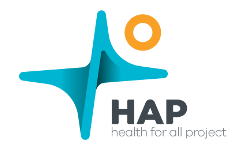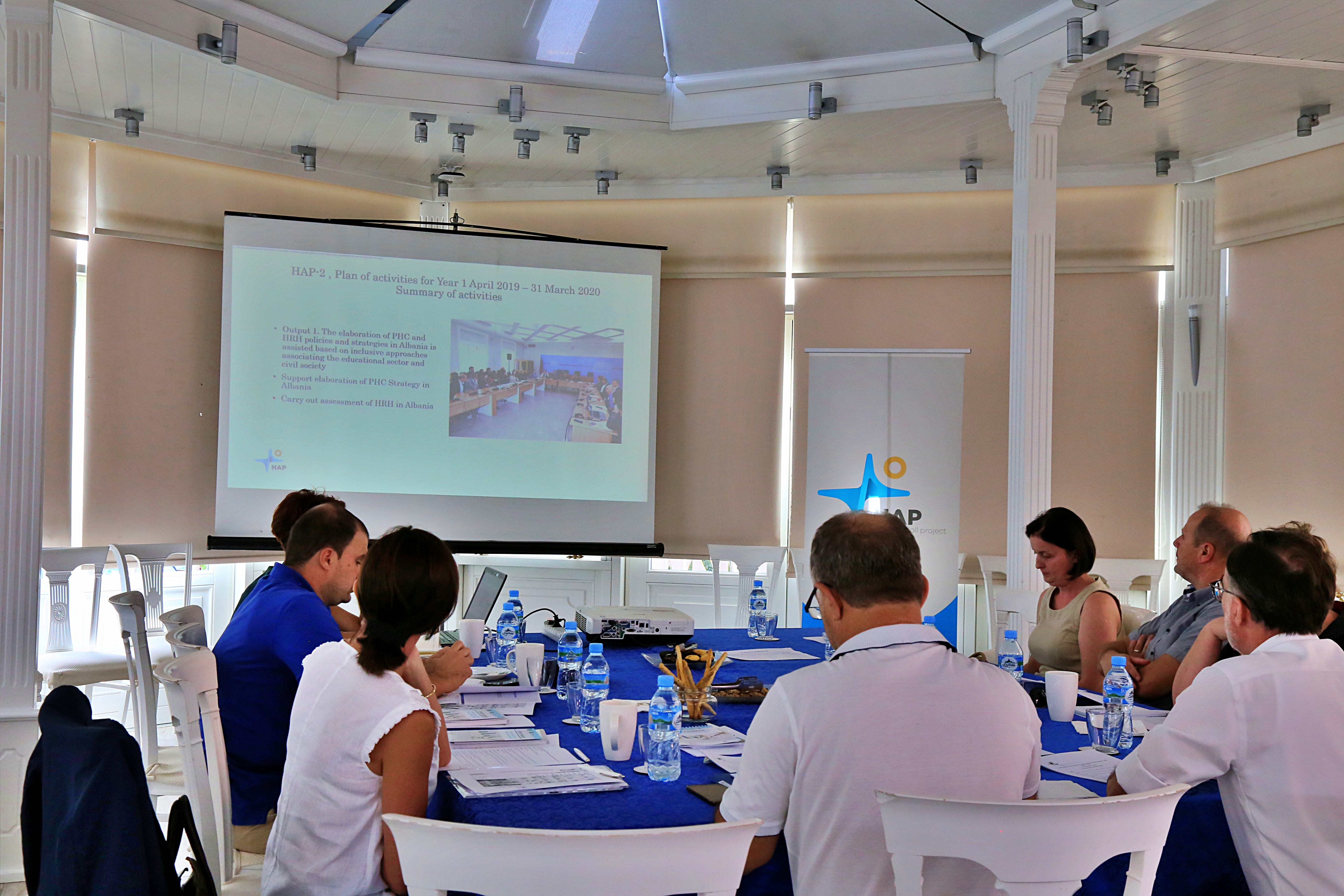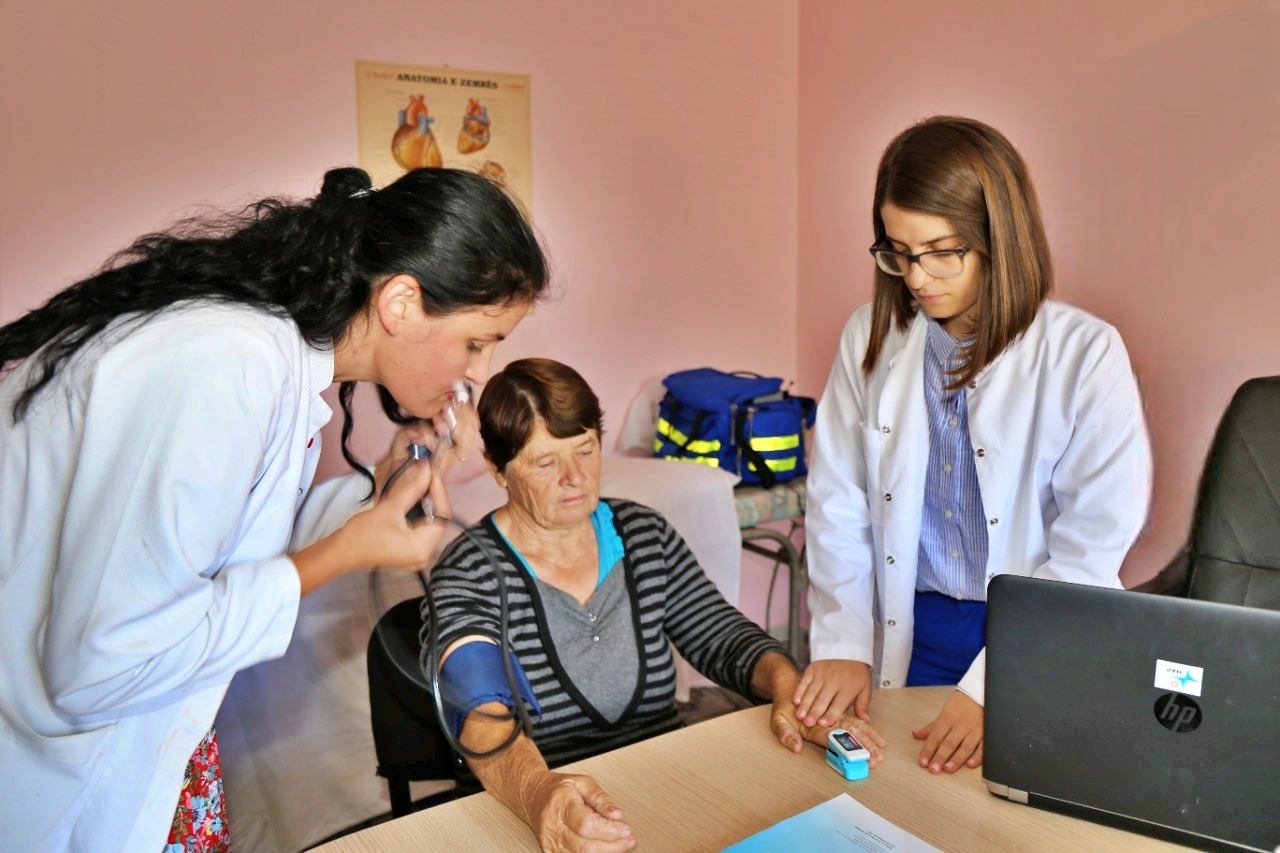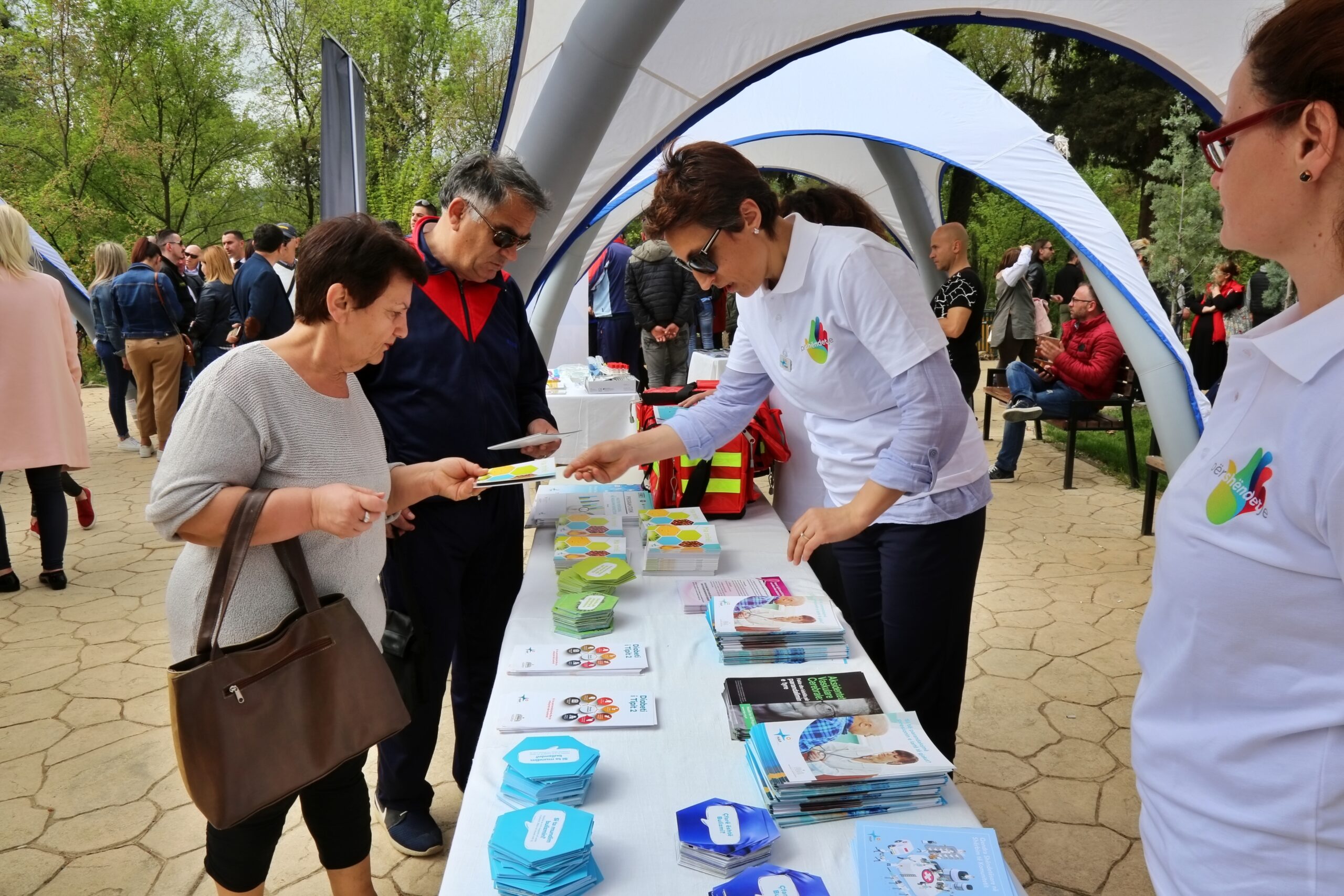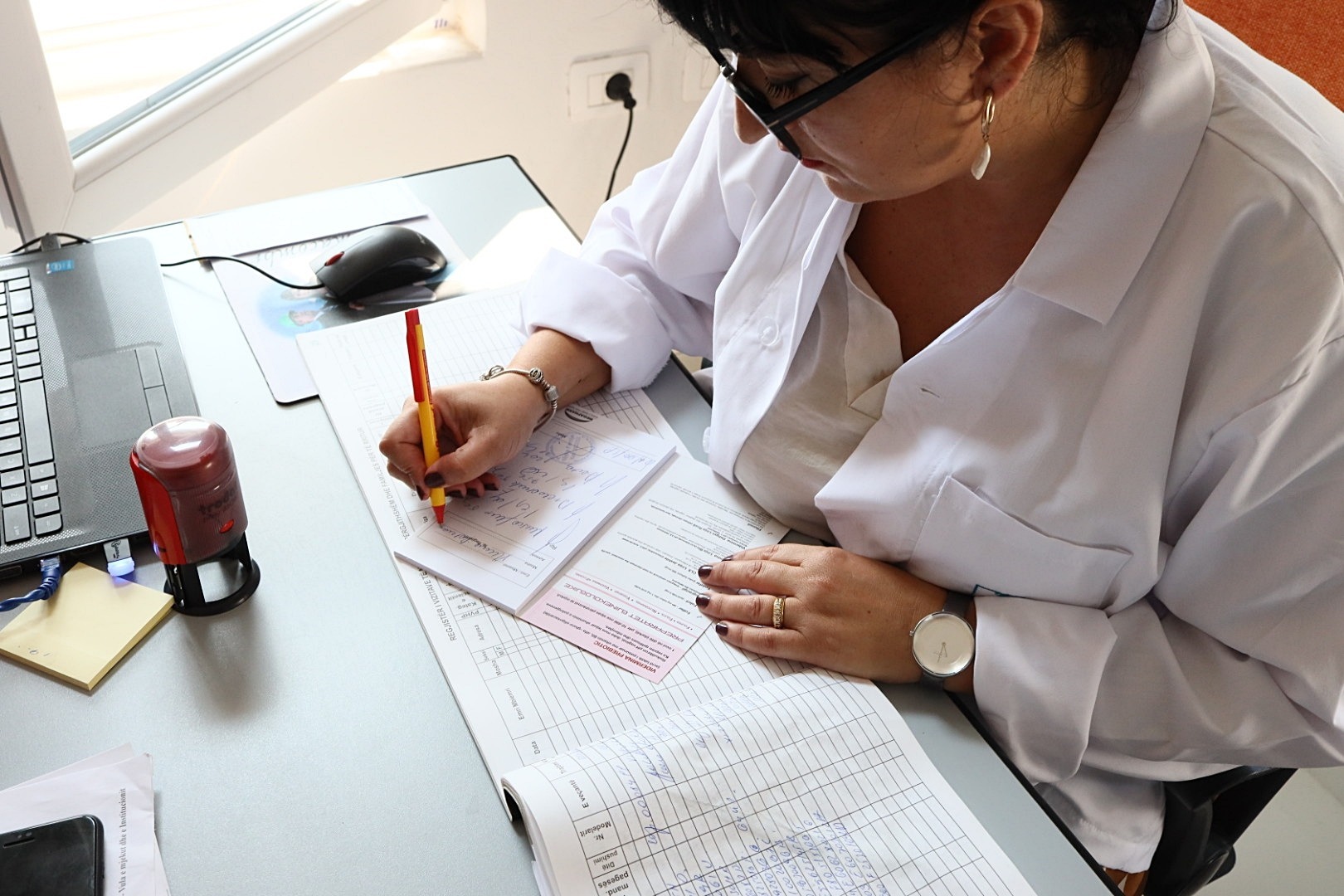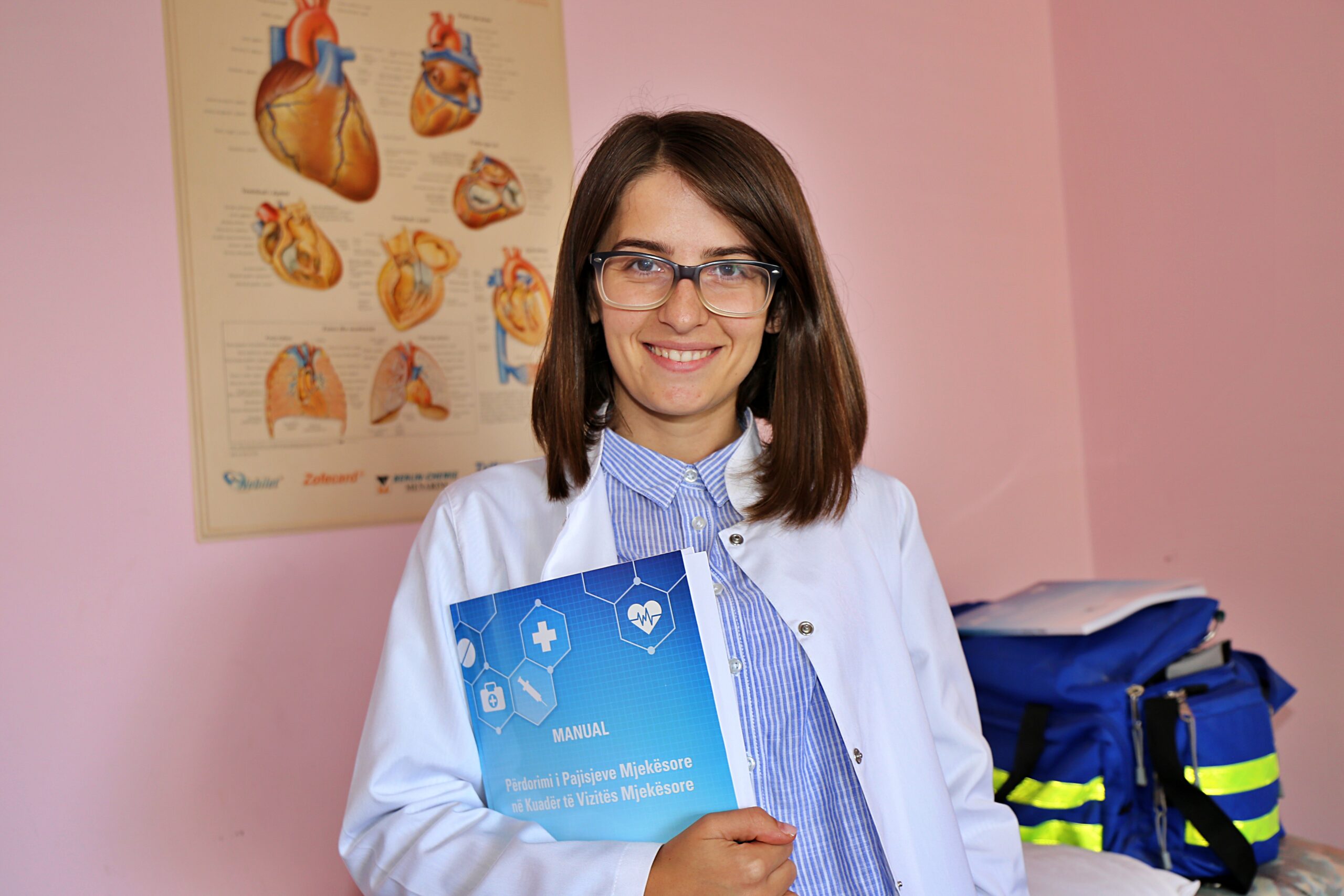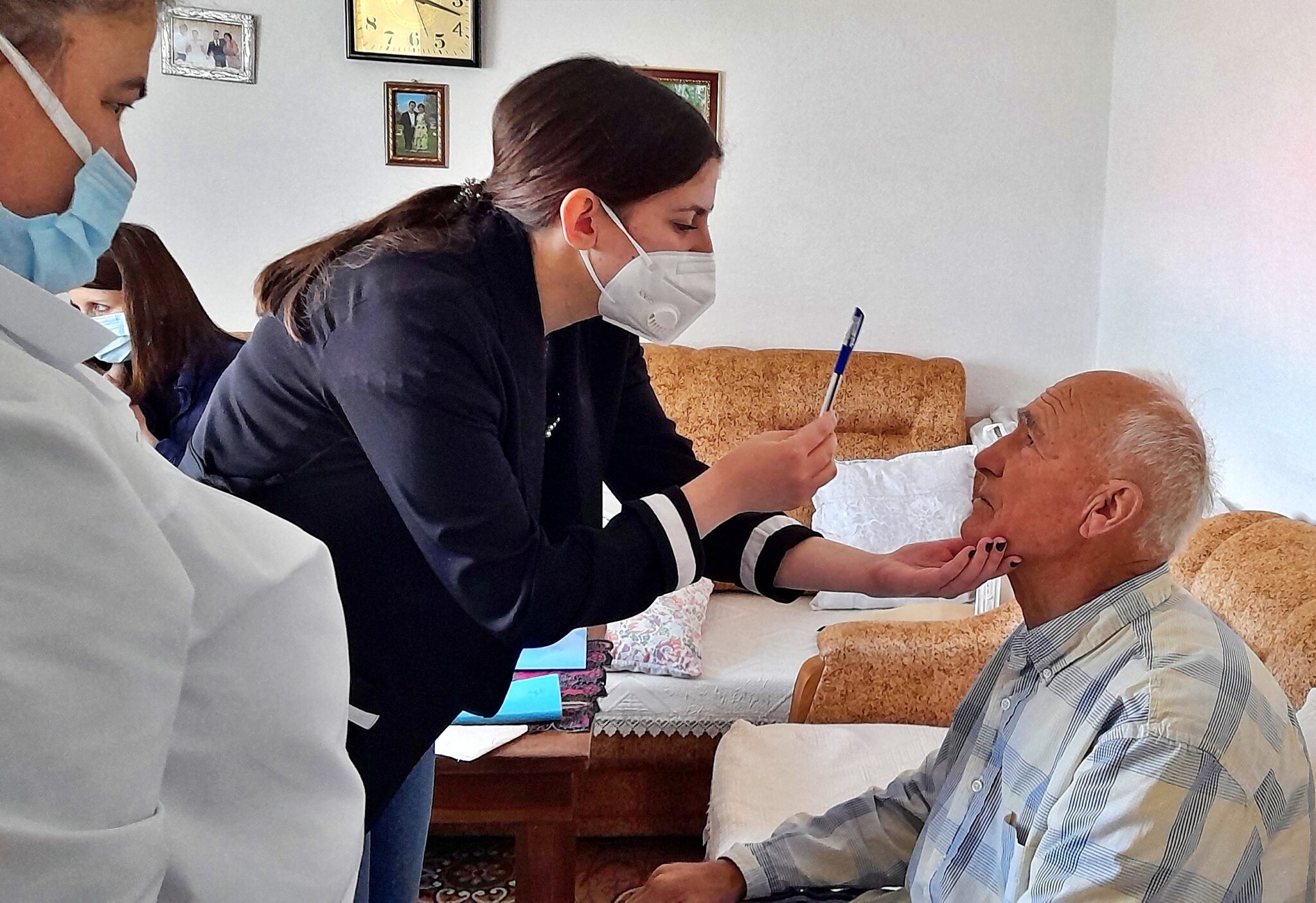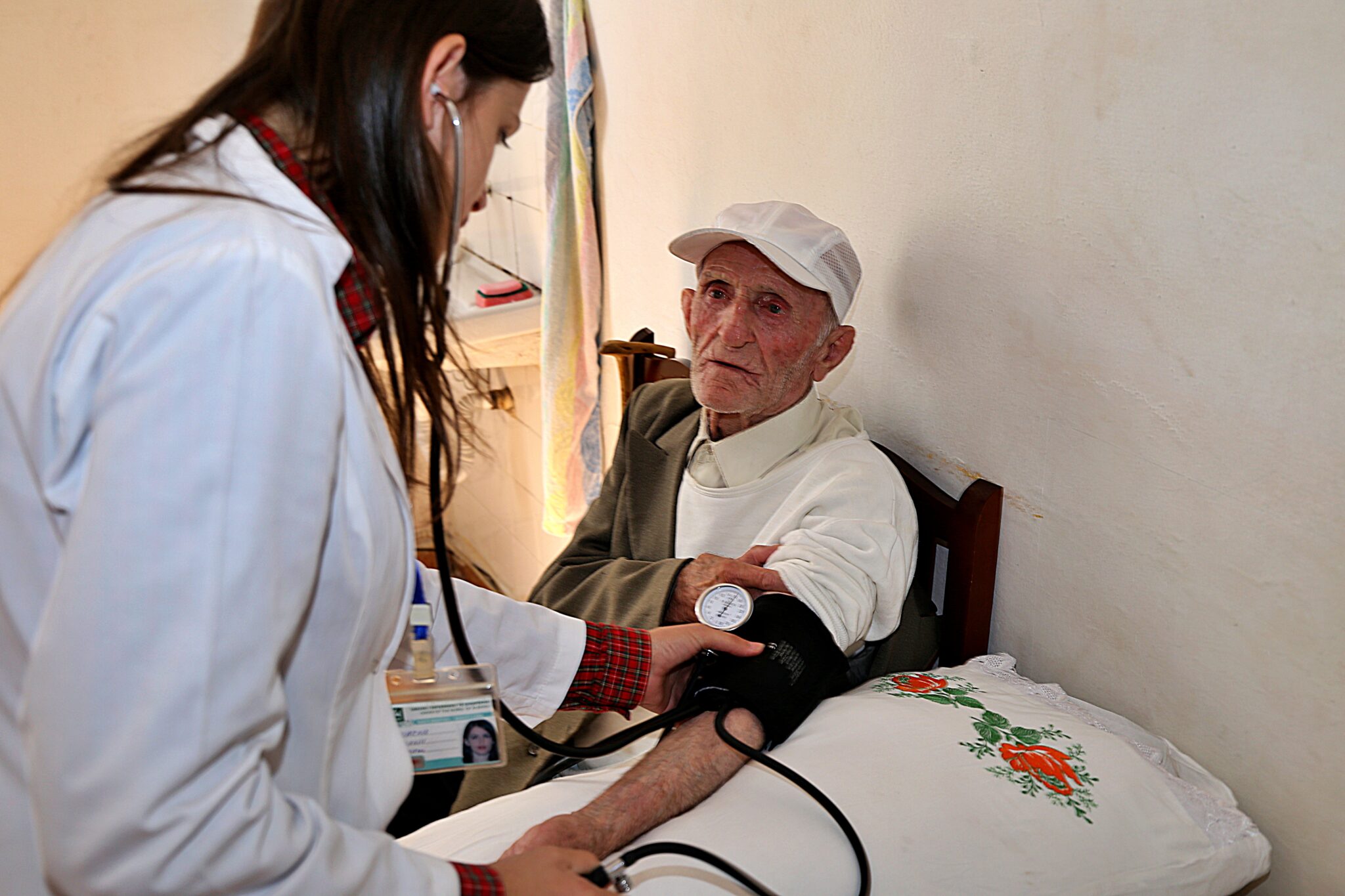The Health for All Project (HAP) is a project of the Swiss Agency for Development and Cooperation being implemented in Albania since 2015 with the aim of improving primary healthcare services for the Albanian population as a whole and vulnerable groups in particular.
The project has gone through three implementation phases: the first phase was implemented by a consortium of three organizations – the Swiss Tropical and Public Health Institute, Save the Children, and Terre des Hommes – and was completed on March 31, 2019. The second phase of the project was implemented from April 2019 to March 2023 by the Swiss Tropical and Public Health Institute. The project has now entered the Consolidation Phase, expected to be completed in March 2027, and continues to be implemented by the Swiss Tropical and Public Health Institute. In Albania, the project is managed by the HAP Centre. The project’s implementation unit is led by an international expert and consists of a team of experienced local specialists in the field of healthcare and in the management of similar high-impact projects.
During the period 2015-2023, the “Health for All” Project (HAP) has made a significant contribution to strengthening Primary Healthcare Services (PHC) and improving population access to basic services, initially in the Dibra and Fier regions, and later in six additional regions: Tirana, Durrës, Shkodra, Berat, Elbasan, and Korça.
HAP has consistently supported the continuing education of family doctors and nurses and the implementation of innovative mechanisms for professional development in order to enhance the quality of PHC services. The role of nurses in providing PHC services has been strengthened, and new forms of home-based healthcare services for chronically ill and disabled individuals have been initiated. Major investments have also been made in the rehabilitation of the infrastructure and essential equipment and furnishings have been provided.
In this third phase of the Consolidation of achievements, the “Health for All” Project will focus on scaling up approved healthcare approaches, such as home-based care, new protocols for the treatment of chronically ill patients, care for the elderly and patients with mental health disorders, the functioning of socio-health centres, capacity building through peer groups for PHC, etc.
The project team efforts will be focused on achieving two main outcomes:
• Outcome 1: National Health Institutions steer and manage PHC and home care services more effectively and efficiently.
• Outcome 2: Citizens have access to and use effectively primary health care and home care of better quality.
